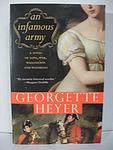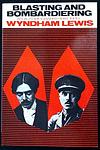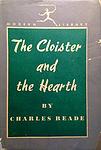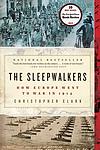The Greatest British "Belgium" Books of All Time
Click to learn how this list is calculated.
This list represents a comprehensive and trusted collection of the greatest books. Developed through a specialized algorithm, it brings together 300 'best of' book lists to form a definitive guide to the world's most acclaimed books. For those interested in how these books are chosen, additional details can be found on the rankings page.
Genres
Countries
Date Range
Reading Statistics
Click the button below to see how many of these books you've read!
Download
If you're interested in downloading this list as a CSV file for use in a spreadsheet application, you can easily do so by clicking the button below. Please note that to ensure a manageable file size and faster download, the CSV will include details for only the first 500 books.
Download-
1. Cloud Atlas by David Mitchell
This novel is a unique blend of six different stories, each set in a different time and place, spanning from the 19th century South Pacific to a post-apocalyptic future. Each tale is written in a different style, reflecting the time and setting it represents, and they are all connected through shared themes and recurring motifs. The stories are nested within each other, with each interrupted by the next, only to be concluded in the second half of the book. The novel explores themes of predacity, civilization, reincarnation and the eternal recurrence of the same behaviors throughout history.
-
2. Parade's End by Ford Madox Ford
The novel chronicles the life of Christopher Tietjens, an officer in the British Army during World War I, and his complex relationships with two women: his adulterous wife Sylvia and a young suffragette named Valentine. The story is set against the backdrop of a changing society and the devastation of war, exploring themes of duty, honor, and the struggle between traditional values and modernism.
-
3. Villette by Charlotte Bronte
The novel follows the life of Lucy Snowe, a young Englishwoman with no family or prospects, who moves to the fictional French town of Villette to teach at a girls' school. As she navigates her new life, she becomes entangled in a love triangle with a fiery professor and a charismatic doctor. The story explores themes of isolation, independence, and the constraints of societal expectations for women.
-
4. An Infamous Army by Georgette Heyer
Set against the backdrop of the Battle of Waterloo, this historical novel weaves a tale of love, valor, and the complexities of war. Through the eyes of its characters, it explores the lives of British aristocrats who find themselves entangled in the events leading up to and during the infamous battle. The narrative not only delves into the strategies and turmoil of warfare but also paints a vivid picture of the social intricacies and romances of the time. Combining meticulous historical detail with a compelling love story, the book offers a rich exploration of a pivotal moment in European history, highlighting both the heroism and the human cost of conflict.
-
5. Blasting And Bombardiering by Wyndham Lewis
This book is an autobiographical account that blends sardonic wit with vivid descriptions of the author's experiences during the first half of the 20th century, particularly focusing on his time serving as an artillery officer during World War I. It offers a trenchant critique of modern warfare and the cultural shifts of the era, as well as an inside look at the author's involvement with the avant-garde art and literary movements of the time. The narrative is characterized by its acerbic humor, intellectual rigor, and the author's distinctive perspective on the chaos and transformation that defined the early decades of the twentieth century.
-
6. Checkmate by Dorothy Dunnett
This novel is the climactic conclusion to a historical fiction series set in the mid-16th century, weaving together the intricate tales of political and personal intrigue across Europe. The story follows the journey of a charismatic and enigmatic protagonist, a master of disguise and strategy, as he navigates the treacherous waters of international politics, warfare, and personal vendettas. His quest for redemption and his complex relationships, including a tumultuous romance, drive the narrative towards a dramatic finale. The book combines rich historical detail with a deep understanding of human nature, showcasing the protagonist's ultimate challenge in a game of power, loyalty, and love.
-
7. The Military Philosophers by Anthony Powell
This novel, part of a larger series, delves into the intricacies of British society during World War II, seen through the eyes of its protagonist, who navigates the complexities of military bureaucracy and the shifting social landscape. Set against the backdrop of significant historical events, the narrative explores themes of power, change, and the enduring nature of human connections. Through his encounters with a wide array of characters, from high-ranking officials to eccentric peers, the protagonist's journey reflects on the impact of war on personal and collective identities, offering a nuanced examination of the era's moral and philosophical dilemmas.
-
8. The Cloister and the Hearth by Charles Reade
Set in the 15th century, this historical novel tells the story of a young Dutch artist named Gerard Eliassoen, who abandons his lover, Margaret, and their children to become a Dominican friar, while she, believing him dead, becomes a nun. The narrative follows Gerard's adventures across Europe, his struggles with his faith, and his eventual reunion with Margaret. The novel explores themes of love, faith, and duty, and provides a vivid depiction of medieval life.
-
9. The Folding Star by Alan Hollinghurst
"The Folding Star" by Alan Hollinghurst is a captivating novel that follows the life of a young Englishman named Edward Manners who moves to Belgium to become a language tutor. As he immerses himself in the local culture, Edward becomes infatuated with one of his students, a 17-year-old boy named Luc. The novel explores themes of obsession, desire, and the complexities of relationships, as Edward's infatuation leads him down a path of self-discovery and ultimately reveals the dark secrets of his own past.
-
10. The Sleepwalkers: How Europe Went To War In 1914 by Christopher Clark
"The Sleepwalkers" by Christopher Clark is a comprehensive account of the events leading up to World War I. The book argues that the war was not caused by any one nation or individual, but rather a combination of factors including nationalism, alliances, and miscommunication. Clark explores the complex political landscape of Europe in the early 20th century and the actions of key players such as Kaiser Wilhelm II and Archduke Franz Ferdinand. The book provides a detailed analysis of the events leading up to the war and challenges traditional narratives of blame and responsibility.
-
11. Headlong by Michael Frayn
In the novel, a young philosopher and his wife discover what they believe to be a lost masterpiece by a famous Renaissance artist in a dilapidated country house. As the protagonist becomes increasingly obsessed with proving the painting's authenticity and securing it for himself, he plunges headlong into a series of comic and tense situations. The narrative cleverly intertwines themes of art history, morality, and human folly, all while satirizing academic pretensions and the art world's eccentricities.
Reading Statistics
Click the button below to see how many of these books you've read!
Download
If you're interested in downloading this list as a CSV file for use in a spreadsheet application, you can easily do so by clicking the button below. Please note that to ensure a manageable file size and faster download, the CSV will include details for only the first 500 books.
Download









